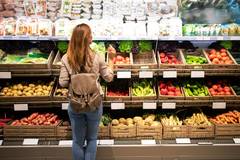Barry Callebaut enters R&D and sustainability partnerships to advance cocoa sector resilience
Barry Callebaut is advancing sustainable and resilient cocoa production through separate partnerships with Nestlé and the Zurich University of Applied Sciences (ZHAW), Switzerland. With Nestlé, the chocolate and cocoa company is targeting Net Zero cocoa production in Brazil, while the collaboration with ZHAW aims to explore the potential of cocoa cell culture technology to supplement traditional farming through an alternative cocoa source.
The university partnership also aims to tap innovation capabilities to “shape the future of chocolate,” says Dries Roekaerts, president of Customer Experience at Barry Callebaut.
“We are not replacing cocoa from farms, but rather preparing for a future where we can offer consumers additional choices and ensure long-term supply security.”
Cell to chocolate
Cocoa cell culture is an emerging field that involves cultivating cocoa cells in a controlled environment. While still in the early stages of development, the company says it holds promising opportunities to develop new chocolate products with “unique flavor profiles or enhanced health benefits.”
Barry Callebaut is leveraging its expertise in chocolate with the scientific knowledge of ZHAW professors Dr. Tilo Hühn and Dr. Ing. Regine Eibl-Schindler who specialize in cell culture technologies.

 The Nestlé partnership will support 6,000 farmers and sequester 1.3 million tons of CO2eq over 25 years.“Our research into cocoa cell culture technology opens up exciting possibilities for sustainable innovation in the chocolate industry. With Barry Callebaut’s support, we’re able to accelerate our scientific exploration and bring academic insights closer to real-world applications,” note the professors.
The Nestlé partnership will support 6,000 farmers and sequester 1.3 million tons of CO2eq over 25 years.“Our research into cocoa cell culture technology opens up exciting possibilities for sustainable innovation in the chocolate industry. With Barry Callebaut’s support, we’re able to accelerate our scientific exploration and bring academic insights closer to real-world applications,” note the professors.
The method also provides an alternative cocoa source to diversify Barry Callebaut’s portfolio and strengthen supply chain resilience while supporting traditional cocoa farming communities.
Climate positive cocoa
Barry Callebaut and Nestlé’s partnership will target climate-positive practices that enhance biodiversity and support farmers in Brazil. The companies will realize a five-year planting initiative generating 6.215 hectares of agroforestry and 7.7 million trees planted, including cocoa and non-cocoa.
The collaboration is part of a new 25-year initiative with a potential 20-year renewal, that will provide carbon benefits to both companies.
Barry Callebaut notes that the program aims to foster the sustainable growth of Brazil’s cocoa sector by empowering entrepreneurial farmers to enter cocoa production and supporting existing cocoa farmers to expand their areas in a climate-friendly way.
“This collaboration with Barry Callebaut is another significant step toward realizing our shared vision of a sustainable cocoa supply chain,” says Barbara Sapunar, executive director of Digital Transformation and ESG at Nestlé Brazil.
“By empowering farmers and incentivizing climate-positive practices, we can collectively contribute to a greener future.”















